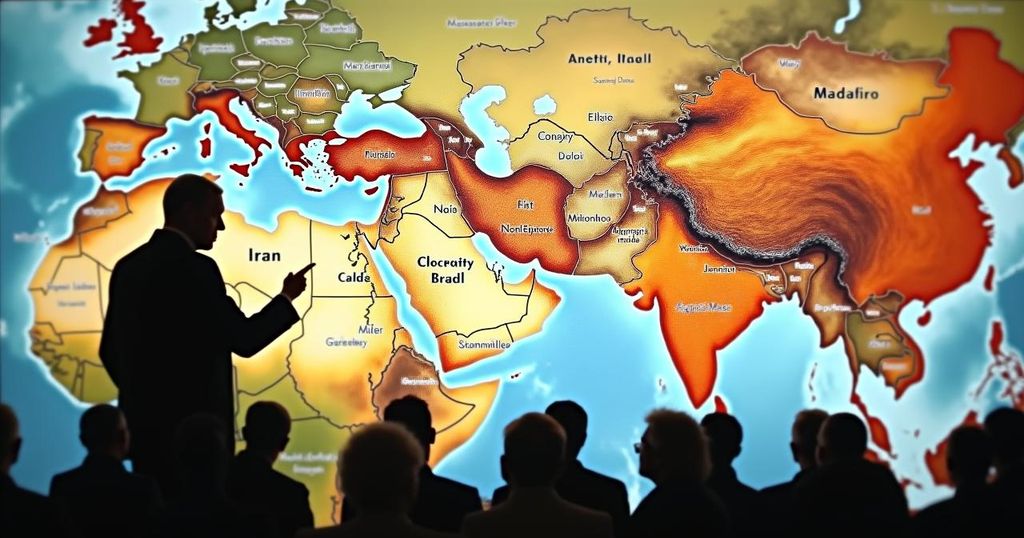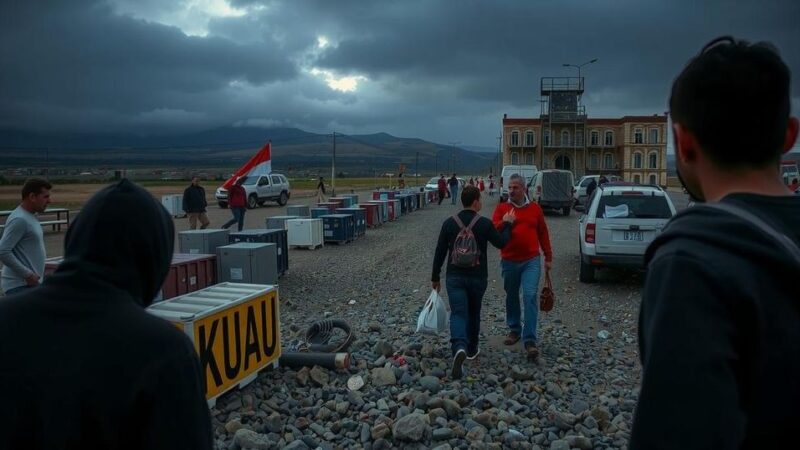During his address at the UN General Assembly, Israeli Prime Minister Benjamin Netanyahu presented two maps, one depicting India as a ‘Blessing’ and the other portraying Iran as a ‘Curse’. He emphasized the dangers posed by Iran’s influence in the region, illustrated through military and terror networks. Netanyahu envisioned enhanced collaboration among moderate nations as a pathway to prosperity, while reaffirming Israel’s commitment to security.
In a recent speech at the United Nations General Assembly, Israeli Prime Minister Benjamin Netanyahu presented two contrasting maps to illustrate his perspective on geopolitical threats and alliances. He characterized India as a ‘Blessing’ while labeling Iran as a ‘Curse’. The map designated as ‘Curse’ depicted Iran, Iraq, Syria, and Yemen in black, signifying what Netanyahu described as an “arc of terror” established by Iran, extending from the Indian Ocean to the Mediterranean. He criticized this Iran-led corridor for disrupting international trade and inflicting misery across nations. Conversely, the ‘Blessing’ map highlighted Egypt, Sudan, Saudi Arabia, and India in green, symbolizing potential collaboration amongst Israel and its Arab partners. Netanyahu articulated a vision of a prosperous future, wherein infrastructure such as rail lines and energy pipelines would connect Asia and Europe, benefitting over two billion individuals. He asserted the necessity of countering Iran’s aggressive actions, which he claimed threaten not only Israel but also the stability of the entire Middle East and beyond. With the maps in each hand, the Prime Minister poignantly contrasted a hopeful future against one of despair, emphasizing Iran’s ambition to extend its radical ideology and military capabilities worldwide. Furthermore, Netanyahu reaffirmed Israel’s commitment to combat Hezbollah and safeguard its citizens, while also addressing what he termed the lies and slanders directed at his country.
The discourse surrounding Iran and its regional influence has increasingly become a focal point in Middle Eastern politics. Iran has been accused of fostering terror networks and military aggression, alarming neighboring states and prompting strategic alliances among countries threatened by its activities. Israel, positioned geographically and politically, sees itself as both a frontline state and a potential leader in fostering collaborative relations with moderate Arab nations, as demonstrated through joint economic projects addressing broader regional concerns. Netanyahu’s address at the UN reflects heightened tensions in this geopolitical landscape, exacerbated by ongoing hostilities with groups like Hezbollah and Hamas, which Israel perceives as direct extensions of Iranian influence.
Netanyahu’s speech at the United Nations starkly framed the ideological division in the region, contrasting the potential for collaboration among moderate nations against the backdrop of Iran’s purported malign influence. His characterizations of India and Iran signify broader themes in international relations, where alliances are reshaped in response to perceived threats. The commitment to infrastructure development and cooperative engagement presents Israel as a central player in a future fraught with challenges but ripe with opportunities for partnership and peace.
Original Source: www.livemint.com






